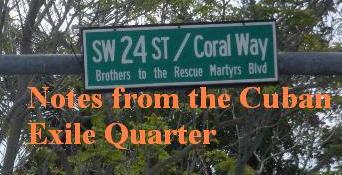 |
| Wilman Villar Mendoza (1980 -2012) |
Cuban prisoner of conscience Wilman Villar Mendoza died in custody of the Castro regime one year ago today. He was just 31 years old. He should never have been in prison in the first place. He is survived by two little girls; a wife; and his mother.
On the Thursday, January 19, 2012 at approximately 6:30pm Cuban prisoner of conscience and opposition activist Wilmar Villar Mendoza died after his kidneys and other organs failed. He died the result of a prolonged hunger strike provoked by outrage over his unjust imprisonment and four year prison sentence issued in a closed-door sham trial on November 24, 2011 by agents of the Castro regime. He died defending both human rights and dignity. Amnesty International recognized him as a prisoner of conscience and Human Rights Watch documented that Wilmar was a Cuban opposition activist.
Today, when members of his movement, the Patriotic Union of Cuba (UNPACU), tried to remember their dead friend they were beaten up by Cuban state security agents. At 2:18pm Jose Daniel Ferrer Garcia was able to post over twitter video footage of three of the victims of the attack. In a later tweet at 5:32pm, Jose Daniel states: "We can describe as very severe the attacks against UNPACU activists in Santiago de Cuba province, on first anniversary of the death of Wilman Villar."
Totalitarian regimes have patterns of conduct. Beating up, arresting and imprisoning an innocent man for engaging in the nonviolent exercise of his fundamental human rights is a common practice in the Cuban regime. "Accidents" and sudden "illnesses" are also known to happen. Political prisoners are subjected to cruel and unusual punishment that amounts to torture.
Finally, when a prisoner or dissident dies and the Cuban government is responsible then the dictatorship engages in a campaign using both official propaganda outlets and agents of influence around the world to slander their memory and hold itself not responsible for their death. If necessary the dictatorship will manufacture "evidence" to makes its "case."
It is for that reason that human rights defenders and friends of freedom have an obligation to remember the truth and repeat it to others in order to defend the memory of men and women like Wilman Villar Mendoza who gave their lives in the cause of freedom.
If courageous men and women inside of Cuba suffer brutal beatings to nonviolently remember these martyrs to Cuban freedom then what is the excuse for those abroad to remain silent? Indifference before evil is not an excuse but a condemnation.
What is indifference? Etymologically, the word means "no difference." A strange and unnatural state in which the lines blur between light and darkness, dusk and dawn, crime and punishment, cruelty and compassion, good and evil. Elie Wiesel, The Perils of Indifference





No comments:
Post a Comment